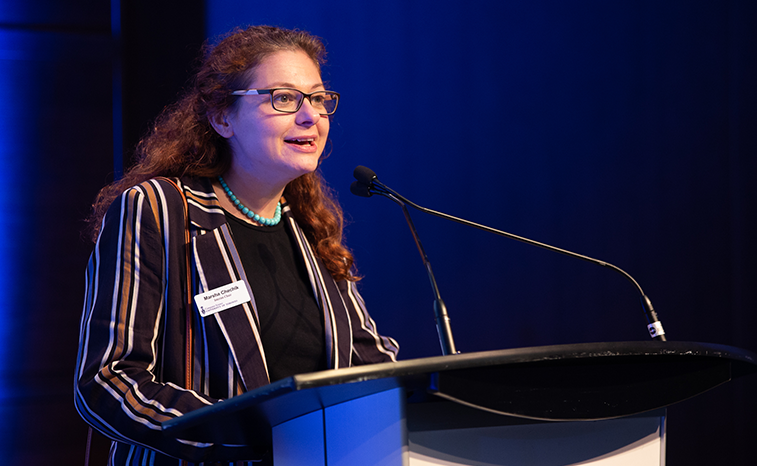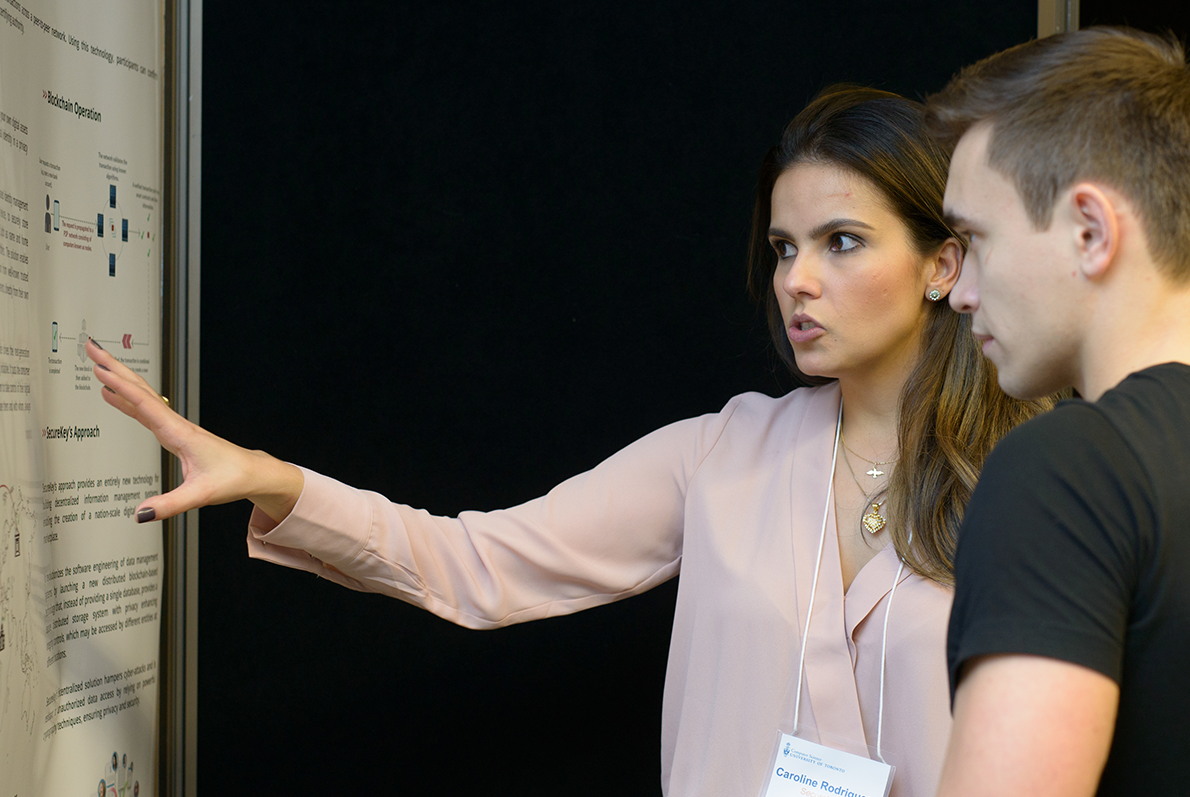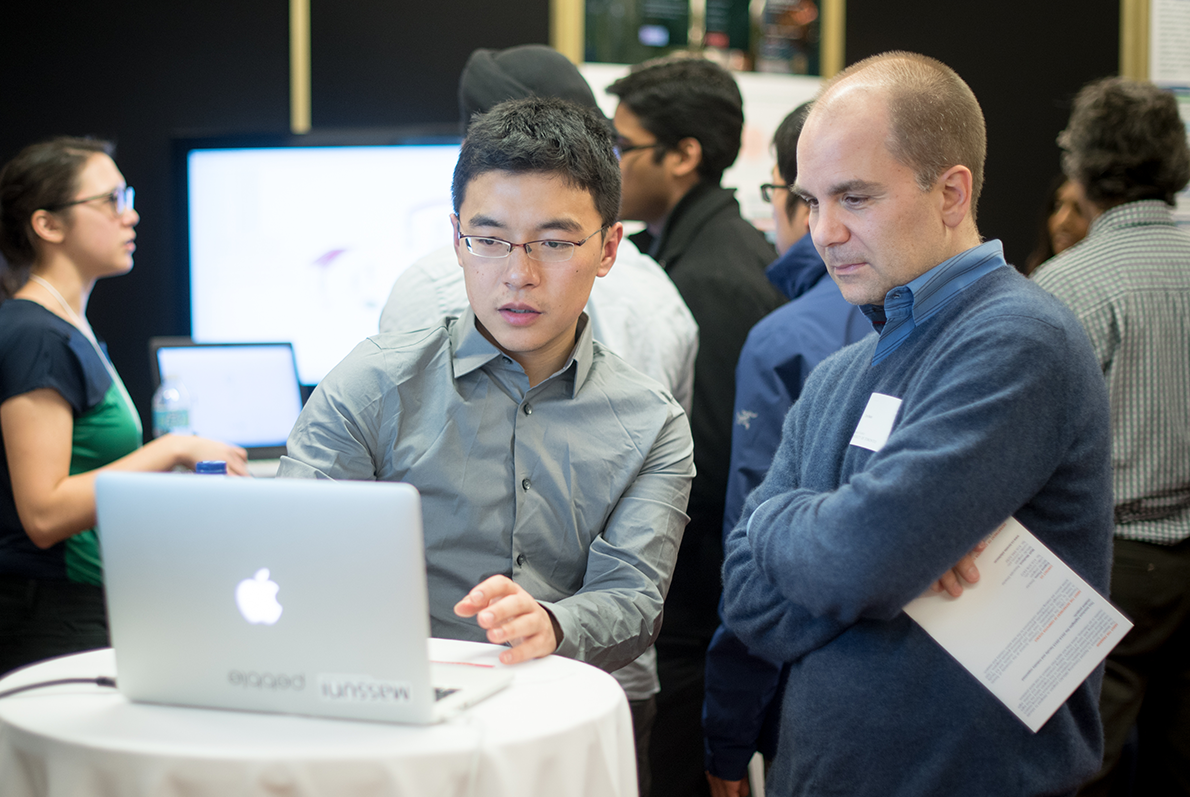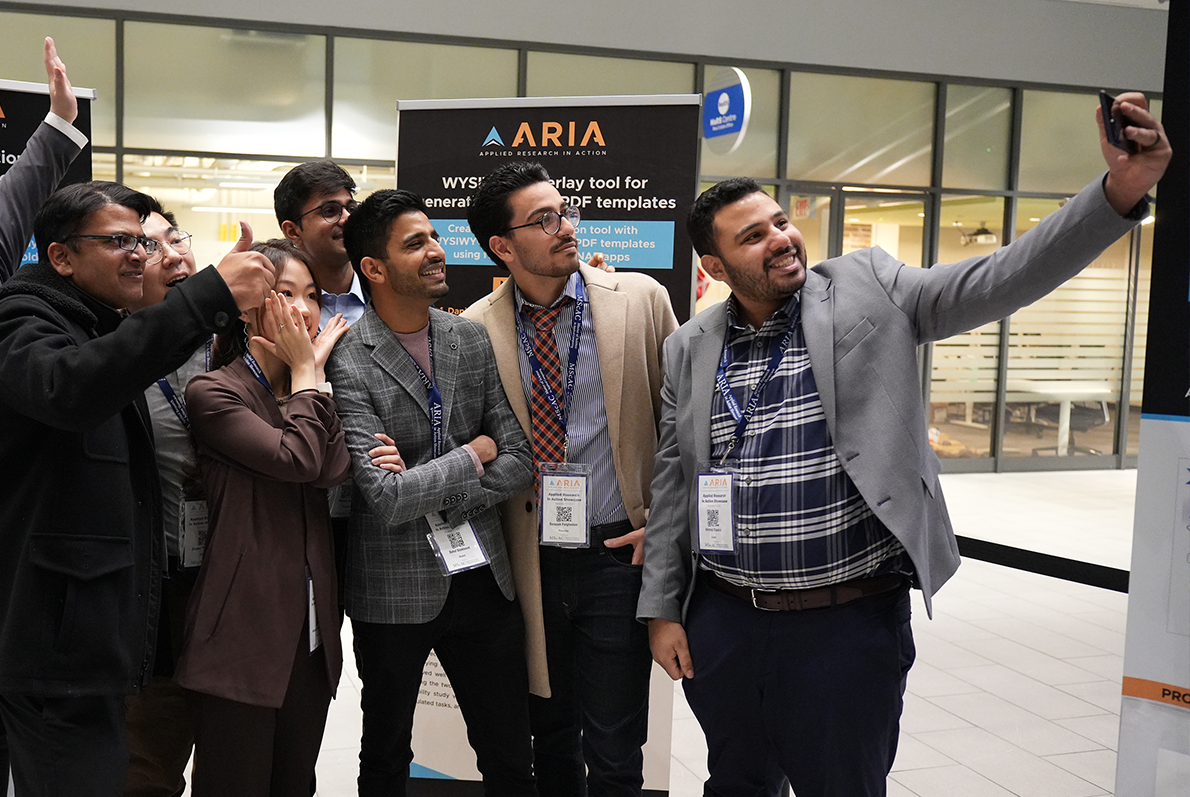prospective
students
Why Choose MScAC
Unique combination of academic research and industry
Being a world-class innovator requires knowledge, experience and expertise in the field. Students gain a rigorous education in state-of the-art research techniques, before advancing on to an applied research internship where this knowledge is used to make an impact in the real world.
Engage with leading researchers
University of Toronto’s pioneering academic researchers span a range of disciplines. MScAC students are taught and mentored by established and emerging leaders in the field.
Collaborate with global industry changemakers
Students have the opportunity to intern at some of the most innovative companies in the world. Applied research internships are created exclusively for MScAC students, so there is opportunity to work with professionals considered the best in their fields. Students can also build an extensive network via the industry-partner events held over the course of the program.
Build a career in industry and academia
MScAC students have access to top Research and Development groups in Toronto and the world. On completion of the program, students progress on to exciting roles such as AI Software Engineer, Big Data Engineer, Technical Operation Strategist, Co-founder and Chief Technology Officer. Students have also been successful in gaining admission to PhD programs at top-tier institutions around the world.
The MScAC Student Network
Almost 500 students have graduated from the MScAC program. Students and alumni have the opportunity to build personal and professional connections with a community of like-minded innovators from all over the world.





Program Overview
With concentrations in Applied Mathematics, Artificial Intelligence, Artificial Intelligence in Healthcare, Computer Science, Data Science, Data Science for Biology and Quantum Computing, the MScAC program provides students with a truly unparalleled academic experience.
Not only will you have the opportunity to customize your own curriculum and learn from world-class faculty about the latest developments in cutting edge technologies, you also have the opportunity to apply that knowledge through a practical applied-research internship at one of our partner companies.
Requirements
- Four graduate research courses chosen from the course schedules offered to students in the MSc/PhD programs (concentration dependent)
- Two mandatory professional courses: Communication for Computer Scientists and Technical Entrepreneurship
- Eight month applied research internship
Duration
- Four (4) semesters (16 months, in-person)
Timeline
Irrespective of the concentration you are admitted to, all students follow the same timeline. For specific course requirements, visit the Concentrations page.
| Year 1 (Semester 1: Sept – Dec) | Year 1 (Semester 2: Jan – April) | Year 1 (Semester 3: May – Aug) | Year 2 (Semester 4: Sept – Dec) |
|---|---|---|---|
| CSC2701H - Communication for Computer Scientists | CSC2701H - Communication for Computer Scientists | CSC2702H - Technical Entrepreneurship | CSC2702H - Technical Entrepreneurship |
| 2 elective graduate courses | 2 elective graduate courses | Internship | Internship |
| MScAC Internship Expo & interviews | Applied Research in Action (ARIA) Showcase; submit final research report |
Program Support
The MScAC program team is committed to supporting students in taking charge of their success. As part of the next generation of world-class innovators, students are strongly encouraged to establish a solid foundation in their chosen field to make a lifelong impact in an innovative environment.
The diverse resources available to students include:
Personalized guidance on how to create a technical study plan that aligns with internship and career goals
Career exploration and skills development workshops
Resume review and interview training
Technical skills refresher training
Employer information sessions and industry-focused events tailored to network-building and internship-finding
Access to pre-approved, custom-built industrial research projects curated by our industry partners and the MScAC Partnerships Group
Individualized internship search support
One-on-one coaching
Our Concentrations
Applied
Mathematics
Artificial
Intelligence
Artificial Intelligence
In Healthcare
Computer
Science
Data
Science
Data Science
For Biology
Quantum
Computing
Applied Research Internships
MScAC internships usually involve research aggregation, namely the exploration and synthesis of research results into an evaluation, study or demonstrable, industrially relevant prototype.
Some students have developed novel research and written research level papers based on their internships. This requires a higher standard of creative or intellectual exploration than would be encountered in a standard co-operative (co-op) work term.
Students are encouraged to explore how they can make an impact in a wide array of industries.
Applied Research Database
Degree Comparison
The MScAC program is one of the most unique in North America. The below table outlines how the MScAC program requirements compare to those of a thesis-based and professional masters:
| Program Requirement | MScAC | Thesis-based/Research-based Masters | Professional Program (e.g MEng) |
|---|---|---|---|
| Duration | 4 semesters (16 months) | 4 semesters (17 months) | Flexible - usually 12 months |
| Courses | Same course requirements as a thesis-based Masters + two professional courses | Course requirements reflect student interest | Often specialised courses |
| Internships | Research in industry, in lieu of a thesis | Research thesis/major research report in a university lab | Co-op placement/capstone project/no internship – courses only |
| Faculty Supervision | Minimal faculty supervision | Intensive faculty supervision | little/no faculty supervision |
| Industry prospects post-program | Most transition to industry jobs | Some transition to industry jobs | Most transition to industry jobs |
| PhD prospects post-program | Some MScAC students transition to PhD | Some MSc students transition to PhD | Very rare to transition to PhD |
The academic supervisor is chosen according to the nature and needs of the internship project. Students meet with their academic supervisor a minimum of six times during the internship period, noting that they are based at the organization. However, projects may benefit from more meetings.
Students considering a PhD program may use this to deepen a connection with a faculty member.

